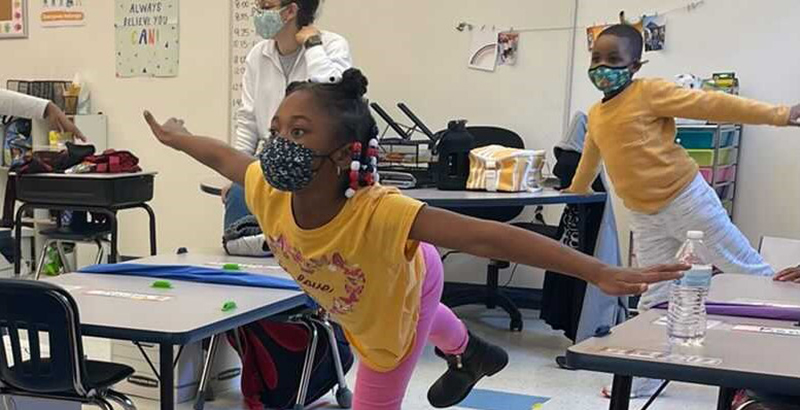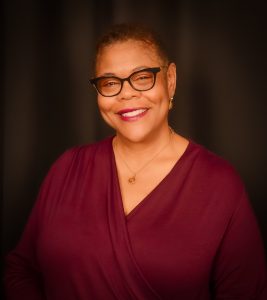KIPP Massachusetts School Leader: I Shared The Power To Lead With My Families During the Pandemic, and We All Benefitted

Get essential education news and commentary delivered straight to your inbox. Sign up here for The 74’s daily newsletter.
In my 30 years as an educator, I have always believed in partnership. And I have never experienced a deeper connection to families than this last year during the pandemic. It is clearer than ever that we are in this together, and that has allowed me, as a leader, to be creative and have no fear of failure.
This past year, our families have become more than partners in our schools. They’ve become co-authors of our educational journey. This is the new normal for our schools, and I am sure for so many others around the country.
Right before COVID-19 changed our lives, I joined my fellow leaders at KIPP Public Schools to take part in racial equity training. One of the key problems we named with the way we ran schools was this: we thought we knew more than our families. And sometimes, we told them what we thought they needed, rather than listening to what they were telling us. We were not writing the story of their children’s education together. We knew we needed to change that.
Once COVID-19 hit, I knew we could not get through what lay ahead without our families. As a mother myself of two KIPP students, I knew shuttering school buildings would mean families would become our co-teachers. Already, research and studies show that family engagement in schools can lead to improved attendance, higher grades and test scores. I made the purposeful choice to share decision-making with our families to be able to navigate the challenges we faced during the pandemic.
Beginning in March of 2020, I started meeting every Sunday with the Families and KIPPsters Together Council, comprised of 10 KIPP Massachusetts families from a variety of backgrounds: immigrant, Black, Latino and more. These meetings continue to this day, now led by principals according to a structured protocol for decision-making and creating solutions for our more than 2,100 students in our schools.

From that point on, families have been working alongside us to navigate pandemic learning, making decisions every step of the way. They helped us decide which virtual platform was best for their children, figure out a communications cadence that would not be overwhelming in their everyday lives, and choose how to proceed on our reopening plans in the fall of 2020.
With many of our families having more than one child attending KIPP Massachusetts, families asked for one schedule for all students — elementary, middle, and high school — so they could plan their day accordingly and not have to worry about disparate schedules. We gave families two options for schedules, which they voted on, and we structured our school days accordingly. And for our May 13 return to school buildings for our 10th-, 11th- and 12th-graders, it was the family group who suggested they would coordinate tours of the high schools so families could get a sense of what safety guidelines would be in place for their children after more than a year of remote instruction.
Like so many schools, we faced challenges in the beginning making remote instruction work, and our student engagement data was not where we wanted it to be., But by fall 2020, we were consistently reaching 90 percent student engagement rates or higher. Our goal is always to keep our student attrition rates low from year to year, and a full 99 percent of our students and families stayed with us from 2019 to 2020.
In our regional surveys, families overwhelmingly say they feel that teachers care about their children’s academic progress and emotional well-being, and that the current school schedule is working for them.
It would be disingenuous to say that there are no disagreements among us. Last year, our families said they didn’t want a spring break, because of the additional challenges it would create for working families with children at home. At the same time, I knew my teachers desperately needed time to rest and recharge. Working together, we found a compromise: instead of our usual practice of sending students home with exercises and reading materials during school breaks, we created a packet of activities that didn’t require a lot of technology or extensive family engagement. This was something that students could do while their parents kept their schedules and my teachers took some well-deserved time off.
Even when we disagree, our relationship is built in deep trust. Families still look to us as the experts of what to teach their students and offer their assistance to roll out a plan. We are a team, united under one mission to deliver joyful and academically excellent schools. And we have built a structure around this co-authorship to make it last. Our principals are required to attend at least two meetings with families a month, and we have created a dedicated position on our regional leadership team — managing director of equity and engagement — to lead this work. It is now part of our DNA.
If we have learned anything through this difficult time, it is that empowering parents in the decision-making process is crucial for our success. Today, I am honored to say that our KIPP Massachusetts families don’t just give feedback; they share the power to lead. They get to co-write their children’s educational journey with us, making decisions and taking action. I am a better leader because of it, and our schools are better for it.
R. Nikki Barnes is executive director of KIPP Massachusetts, which educates 2,100 students in four schools located in Boston and Lynn.
Get stories like these delivered straight to your inbox. Sign up for The 74 Newsletter

